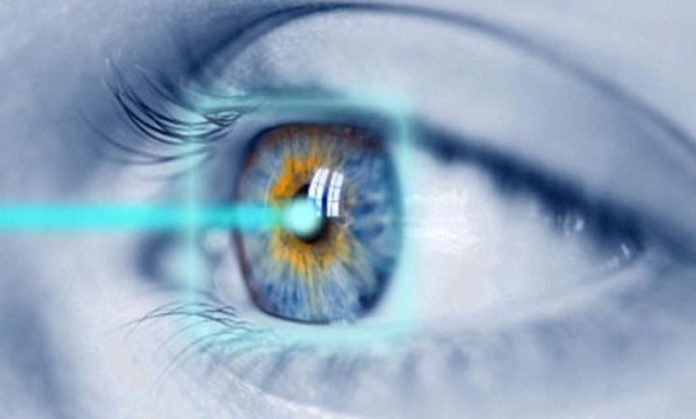If you’re reading this article we’re guessing you’re probably having some problems with your eyes and you’re starting to think about having laser eye treatment, right?
And you want to know all about the different treatment types for your condition – along with all the potential risks and complications and the possible side effects of laser eye treatment, yes?
Good – you’ve come to the right place; we are the UK’s no.1 most trusted eye specialist, and we’ve made it our mission to make sure all of our customers are fully informed about all aspects of laser eye treatment – before going ahead, so you know exactly what to expect following your surgery.
The benefits of laser eye treatment
If you’re considering laser eye surgery, you could be suffering from any number of eye conditions that are affecting your daily life.
For you it could be eye irritations and recurrent eye infections from wearing contact lenses?
Perhaps you’ve noticed a marked deterioration in your eyesight – with blurred vision and other abnormalities – and you want to do all you can to protect your precious eyesight well into the future?
Or maybe it’s your bank balance that’s looking a little bit unhealthy from all the trips to the optician and the increasing cost of prescriptive lenses? And all the paraphernalia that goes along with them.
Laser eye treatment can help correct:
✔ Short sight (Myopia)
✔ Long sight (Hyperopia)
✔ Astigmatism
✔ Wavefront abnormalities
Imagine being able to throw away all those glasses and lenses once and for all?
85% of patients who have laser eye treatment achieve near perfect, 20/20 vision after surgery. But even if your vision can’t be corrected to that level, because of the particular refractive error you suffer from, you will see huge improvement to 20/40 vision, which is the standard required for passing the UK Driving Test.
Laser eye surgery risk factors and eligibility
Not everyone is a candidate for laser eye surgery. A series of conditions and anatomical factors can aggravate the risk of undesirable outcomes or limit optimal laser eye surgery outcomes. You may be unsuitable for laser eye surgery due to the following factors:
- Corneas which are too thin or irregularly shaped
- Heightened refractive error
- Existing unstable vision
- Dry eyes
- Age limitations (must be 18 or over)
- Physiological factors such as pregnancy
- Existing degenerative disorders
- Laser eye surgery side effects and complications
Possible Side Effects & Complications After Laser Eye Surgery
Millions of people n the UK have had laser eye correction since its introduction over 20 years ago. The procedure has always been done by experienced laser eye surgeons in private clinks across the UK and luckily complications are rare. However, here are some of the side effects and complications that have been reported:
Temporary visual disturbances and discomfort: Occurs during the first few days after surgery, and manifests in mild irritation and light sensitivity. Patients have also reported halos and glares especially when driving at night, episodes of dry eyes, hazy vision and reduced acuity of vision. Since these problems are not permanent, they usually disappear within three to six months
Flap complications: Laser eye surgery involves procedures such as LASIK whereby a flap is cut on the front surface of the cornea. The flap is lifted during surgery to allow for corneal reshaping and later replaced using natural bandage.
Dry Eyes: Often reported by patients who have undergone LASIK laser surgery as a result of decreased tear production culminating in eye irritation and vision blurring. Up to half of laser eye surgery patients experience varying levels dry eye syndrome. Being a temporary problem, dry eye syndrome can be corrected by application of eye drops to lubricate the surface of the eyes. As healing continues, dry eye syndrome also disappears.
Remarkable undercorrection, overcorrection or regression: In many instances, side effects of laser eye surgery manifest in the perception of objects in the long term. After laser eye surgery, not all patients will achieve 20:20 vision, and it may still be necessary to use glasses and contacts in some cases. In case the laser removes too much or too little tissue from the cornea, or your eyes’ healing is disturbed, the eventual visual outcome may not be optimal as expected. The less-than-perfect surgical are often as a result of your eyes failing to respond appropriately to laser eye surgery as predicted. Similarly, your eyes may work optimally a few weeks after surgery, but over time you develop regression due to over-healing. Is directly related to
Eye infection: Although rare, laser eye surgeons attest that the likelihood of infections occurring is high in surgeries that use surface ablations such as PRK. By using a natural bandage after surgery, a more sterile environment is created that foster proper healing after eye laser surgery.



















































